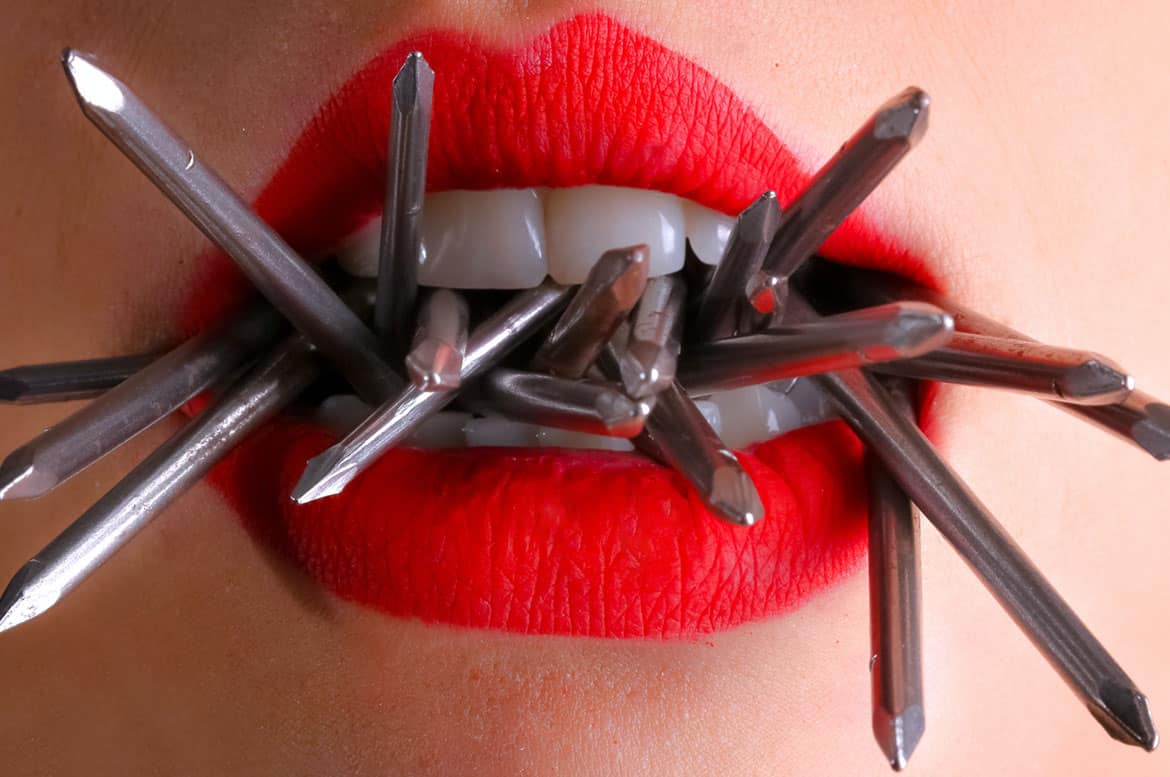I don’t need to tell you that we are living in difficult times. For many of us, our daily problems, confinement, fears and feelings of uncertainty are producing increased levels of stress in our lives.
Stress is a common cause of many health problems. Your oral health is no exception. Stress may contribute to teeth grinding, gum disease, dry mouth and canker sores and may also impact your oral health routine and diet, increasing your risk of tooth decay. Many of us “stress eat,” which increases our weight and also subjects our teeth to increased levels of sugars and acids, which can further deteriorate our teeth and gums.
Oral Health Conditions Caused by Stress
Teeth Grinding: Clenching or grinding (Bruxism) can cause damage to your teeth and enamel as well as headaches and soreness in the jaw. As grinding often occurs during the night, you may not be aware you are doing it. Your dentist may recommend a night guard to protect your teeth from damage.
Gum Disease: Stress can lower your immune system and increase your risk for infection in the mouth, including gum disease.
Dry Mouth: Dry mouth is both a side effect of stress as well as the medicines used to treat stress and depression. The mouth’s first line of defense against bacteria is saliva, and without it there is an increased risk of tooth decay, gum disease and infection.
Canker Sores: Canker sores (white spots found on the soft tissue of the mouth) are harmless but can be painful. They will usually go away on their own within 1-2 weeks, or your dentist may prescribe a topical treatment or rinse.
Tooth Decay: A neglected oral health routine, unhealthy lifestyle choices and conditions such as dry mouth increase your risk of tooth decay.
Tips to Reduce the Impact of Stress on Your Oral Health:
Prevention: Establish a daily routine of brushing and flossing your teeth to prevent the build-up of plaque.
Lifestyle: Choose healthy foods, less sugar and avoid smoking and drinking alcohol. If you do eat sugar, smoke or drink alcohol, brushing your teeth after these habits will reduce damage to your teeth.
Exercise: Yoga and relaxation techniques may help you reduce stress, reducing the strain on your jaw muscles.
Mouth Guards: They work by putting a barrier between your teeth. When you clench your jaw, the night guard helps to lighten the tension and gives cushion to the muscles in the jaw. This cushioning not only helps to prevent face and jaw pain, but also protects the enamel of your teeth.
Regular Dental Visits: It’s best to visit your dentist every six months, but at least once a year. Your dentist will help you keep your teeth and gums healthy. During the dental check-up, your dentist will check your overall oral health for any trouble areas. During the cleaning, your dentist will remove any plaque and tartar buildup and may polish your teeth.
Alternative Treatments: Some of my patients use services such as homeopathy, Bach flower treatments, Reiki, Acupuncture, etc. to reduce stress and increase overall health.
Goodness Dental is ranked as one of the top five dental clinics in the world, and we’re located in Escazú, Costa Rica, near great hotels, dining and shopping. We’re here to help you with a professional dental check-up and we have a full team of specialists including maxillofacial surgeons, endodontists, periodontists, prosthodontists and general dentists. We also offer holistic and biological dental care, as well as alternative therapies from a licensed naturopathic practitioner. Call or email to learn more.
— Dr. Karen Yurell: karen.yurell@goodnessdental.com
Call Toll Free: 866-367-6835
This story was sponsored by Goodness Dental.






